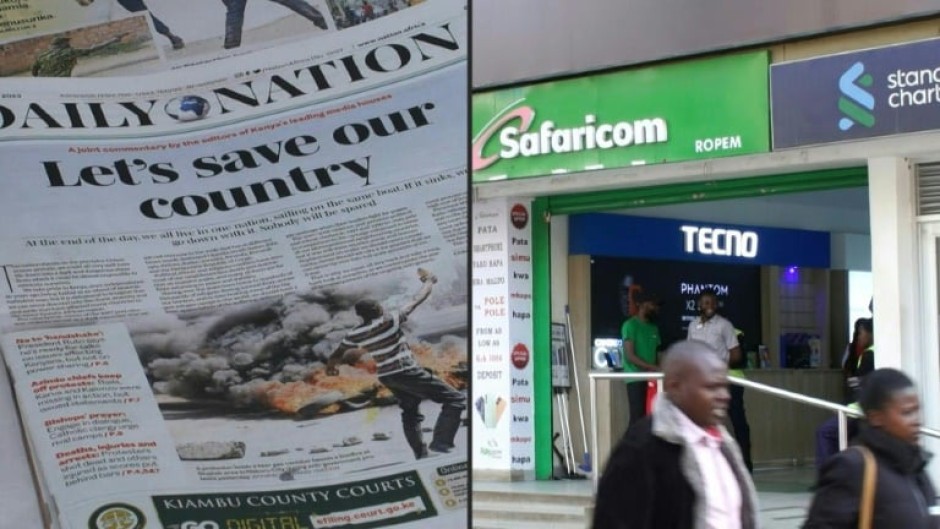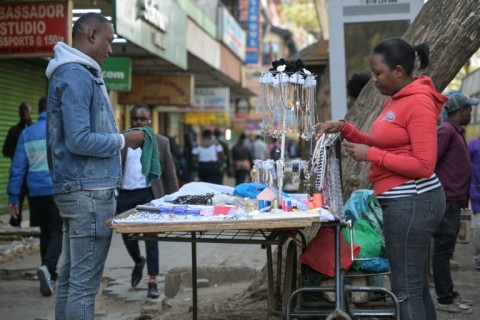
NAIROBI - Shops and schools in Kenya reopened on Thursday despite a call by the opposition to continue anti-government protests that have led to over a dozen deaths and sparked appeals for political dialogue.
Sporadic clashes broke out on Thursday in Nairobi's Kibera slum, an opposition stronghold, according to AFP journalists, with police firing tear gas and live rounds at stone-throwing demonstrators, but no violence was reported elsewhere.
Veteran opposition leader Raila Odinga has called for three days of demonstrations this week, with two people killed and more than 300 people arrested following protests on Wednesday.
The toll adds to more than a dozen fatalities since March, when Odinga mounted his campaign, triggering alarm in the international community.
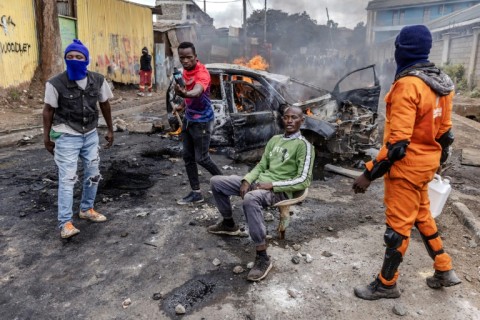
His Azimio alliance on Wednesday evening urged "Kenyans to come out in an even bigger way tomorrow".
But no major demonstrations were reported on Thursday, apart from skirmishes in Kibera, where police clashed with protesters, while some residents armed with sticks stood guard to prevent burglaries.
"Yesterday, five shops were looted in this area, we are here to avoid that from happening today, we are tired of it," said Jacob Anyango, 45.
Schools in Nairobi and the opposition bastions of Kisumu and Mombasa reopened, with the interior ministry assuring Kenyans that it had taken "adequate measures to guarantee the safety and security of learners".
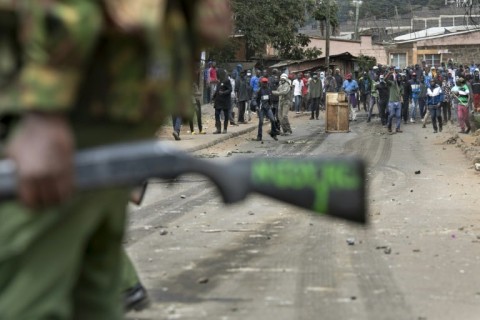
Nairobi's business district, which was largely shuttered on Wednesday, went back to work, with stores reopening and office-goers on the move.
Bookseller Charles Muru, 51, said he had shut his kiosk on Wednesday due to "fear of the protests".
"Today it is near to normal, not normal yet, but we are getting there," he told AFP.
"It is hurting us, the protests have to stop."
- 'Put out the fire' -
The police response to the demonstrations has sparked outrage from rights groups, with Amnesty International's Kenya chapter on Thursday condemning the "use of excessive, unnecessary and unlawful force, including lethal force".
Opiyo Wandayi, minority leader of the National Assembly, also criticised the authorities, saying: "The police brutality is alarming and we want the international community to take note of this".
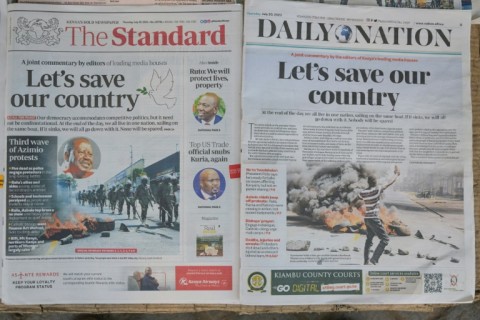
The unrest has raised fears for Kenya, which is seen as a beacon of stability in a volatile region.
Leading newspapers published a joint editorial on Thursday calling for Odinga and President William Ruto to hold talks.
The two men "owe it to themselves and to the people of Kenya to consider if they want any more blood on their individual hands," it said.
"The sparks of conflagration have already been lit, and it is upon them both that lies the greatest responsibility to put out the fire before it spreads out of control."
"The nation stands on a precipice," it warned.
- 'Hand to mouth' -
Odinga called off demonstrations in April and May after Ruto agreed to dialogue, but the talks broke down.
Odinga says Ruto's government is illegitimate and to blame for a cost-of-living crisis.
The government in turn has accused the opposition of derailing efforts to improve the economy, with Ruto on Thursday saying that protests were "not a solution to (the) problems of Kenyans."
Analysts said the protests have piled further pressure on a population already struggling with galloping inflation.
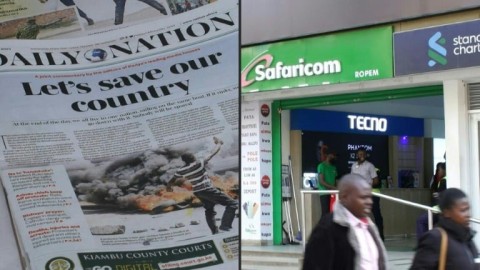
"If these protests continue this way... and with a lot of violence and looting, they will lose purpose and even the leaders will eventually lose credibility," he told AFP.
Opposition protests following Odinga's election loss in 2017 continued until he brokered a surprise pact with his erstwhile foe, former president Uhuru Kenyatta, that became known as "the handshake".

